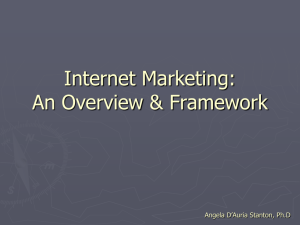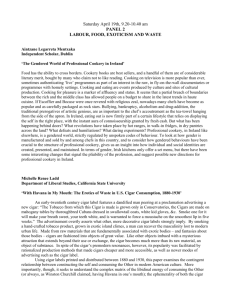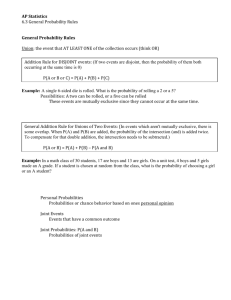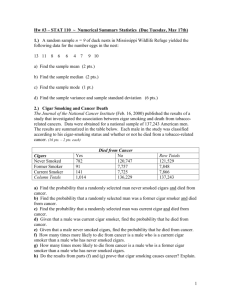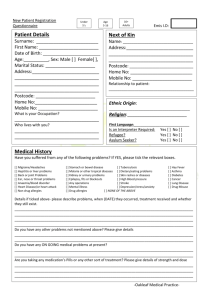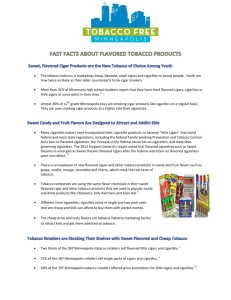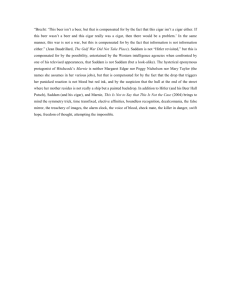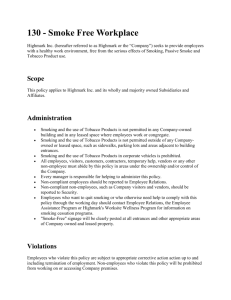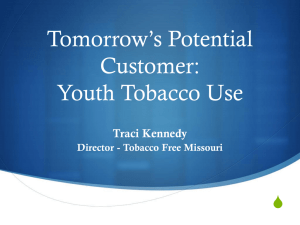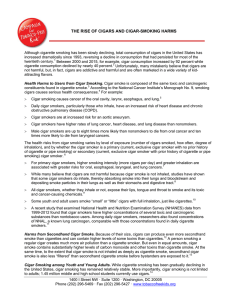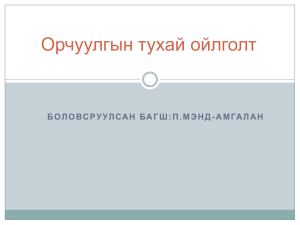HOW TO MAKE STATE CIGAR TAX RATES FAIR AND EFFECTIVE
advertisement
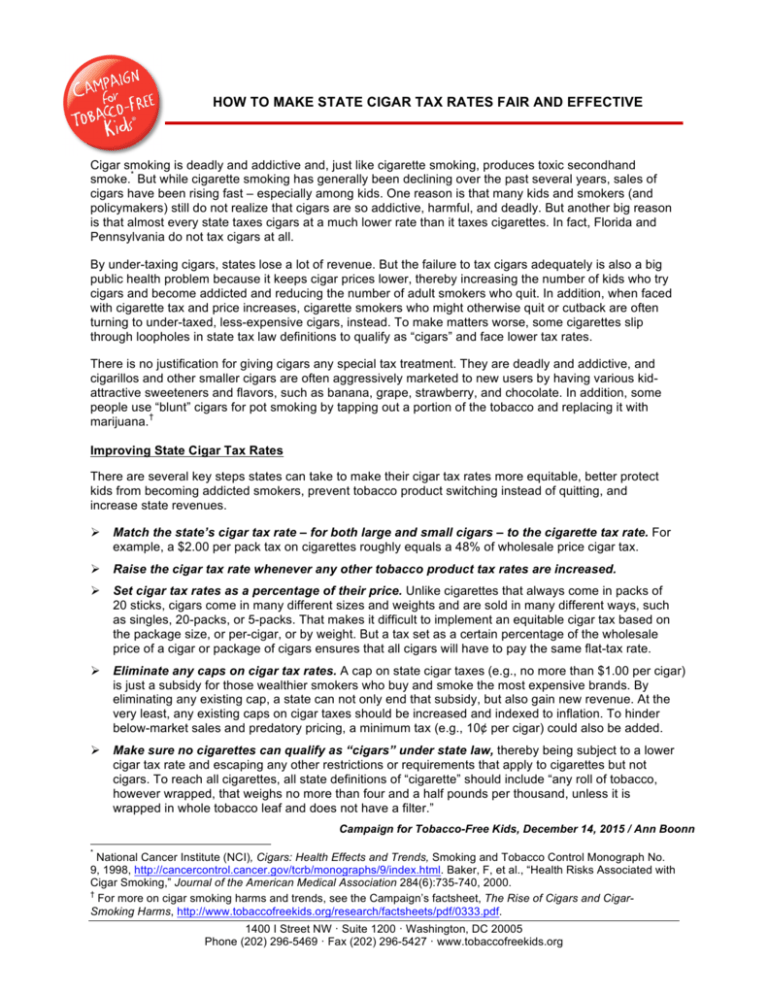
HOW TO MAKE STATE CIGAR TAX RATES FAIR AND EFFECTIVE Cigar smoking is deadly and addictive and, just like cigarette smoking, produces toxic secondhand * smoke. But while cigarette smoking has generally been declining over the past several years, sales of cigars have been rising fast – especially among kids. One reason is that many kids and smokers (and policymakers) still do not realize that cigars are so addictive, harmful, and deadly. But another big reason is that almost every state taxes cigars at a much lower rate than it taxes cigarettes. In fact, Florida and Pennsylvania do not tax cigars at all. By under-taxing cigars, states lose a lot of revenue. But the failure to tax cigars adequately is also a big public health problem because it keeps cigar prices lower, thereby increasing the number of kids who try cigars and become addicted and reducing the number of adult smokers who quit. In addition, when faced with cigarette tax and price increases, cigarette smokers who might otherwise quit or cutback are often turning to under-taxed, less-expensive cigars, instead. To make matters worse, some cigarettes slip through loopholes in state tax law definitions to qualify as “cigars” and face lower tax rates. There is no justification for giving cigars any special tax treatment. They are deadly and addictive, and cigarillos and other smaller cigars are often aggressively marketed to new users by having various kidattractive sweeteners and flavors, such as banana, grape, strawberry, and chocolate. In addition, some people use “blunt” cigars for pot smoking by tapping out a portion of the tobacco and replacing it with † marijuana. Improving State Cigar Tax Rates There are several key steps states can take to make their cigar tax rates more equitable, better protect kids from becoming addicted smokers, prevent tobacco product switching instead of quitting, and increase state revenues. Ø Match the state’s cigar tax rate – for both large and small cigars – to the cigarette tax rate. For example, a $2.00 per pack tax on cigarettes roughly equals a 48% of wholesale price cigar tax. Ø Raise the cigar tax rate whenever any other tobacco product tax rates are increased. Ø Set cigar tax rates as a percentage of their price. Unlike cigarettes that always come in packs of 20 sticks, cigars come in many different sizes and weights and are sold in many different ways, such as singles, 20-packs, or 5-packs. That makes it difficult to implement an equitable cigar tax based on the package size, or per-cigar, or by weight. But a tax set as a certain percentage of the wholesale price of a cigar or package of cigars ensures that all cigars will have to pay the same flat-tax rate. Ø Eliminate any caps on cigar tax rates. A cap on state cigar taxes (e.g., no more than $1.00 per cigar) is just a subsidy for those wealthier smokers who buy and smoke the most expensive brands. By eliminating any existing cap, a state can not only end that subsidy, but also gain new revenue. At the very least, any existing caps on cigar taxes should be increased and indexed to inflation. To hinder below-market sales and predatory pricing, a minimum tax (e.g., 10¢ per cigar) could also be added. Ø Make sure no cigarettes can qualify as “cigars” under state law, thereby being subject to a lower cigar tax rate and escaping any other restrictions or requirements that apply to cigarettes but not cigars. To reach all cigarettes, all state definitions of “cigarette” should include “any roll of tobacco, however wrapped, that weighs no more than four and a half pounds per thousand, unless it is wrapped in whole tobacco leaf and does not have a filter.” Campaign for Tobacco-Free Kids, December 14, 2015 / Ann Boonn * National Cancer Institute (NCI), Cigars: Health Effects and Trends, Smoking and Tobacco Control Monograph No. 9, 1998, http://cancercontrol.cancer.gov/tcrb/monographs/9/index.html. Baker, F, et al., “Health Risks Associated with Cigar Smoking,” Journal of the American Medical Association 284(6):735-740, 2000. † For more on cigar smoking harms and trends, see the Campaign’s factsheet, The Rise of Cigars and CigarSmoking Harms, http://www.tobaccofreekids.org/research/factsheets/pdf/0333.pdf. 1400 I Street NW · Suite 1200 · Washington, DC 20005 Phone (202) 296-5469 · Fax (202) 296-5427 · www.tobaccofreekids.org
